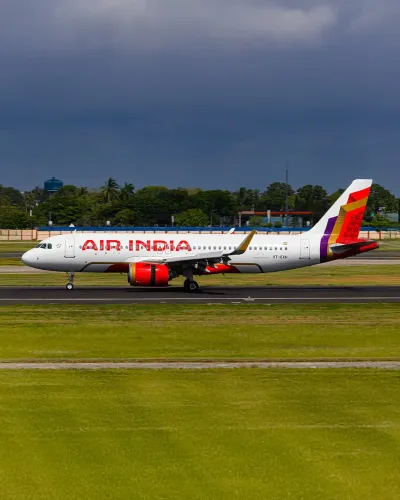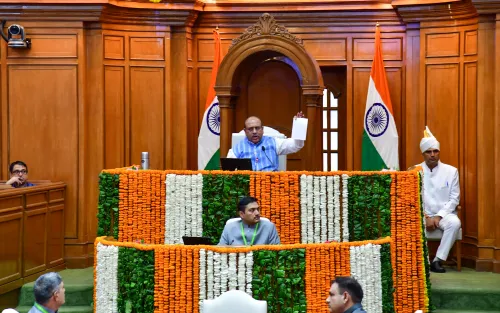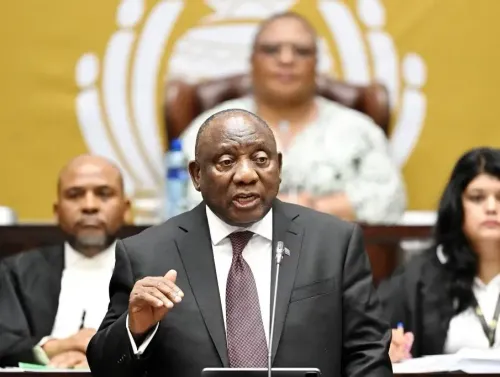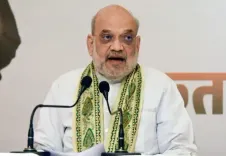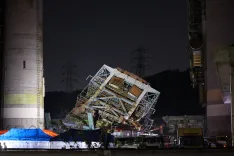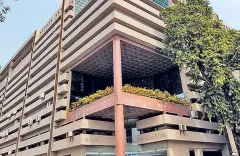What Happened in the Karnataka Stampede Case?
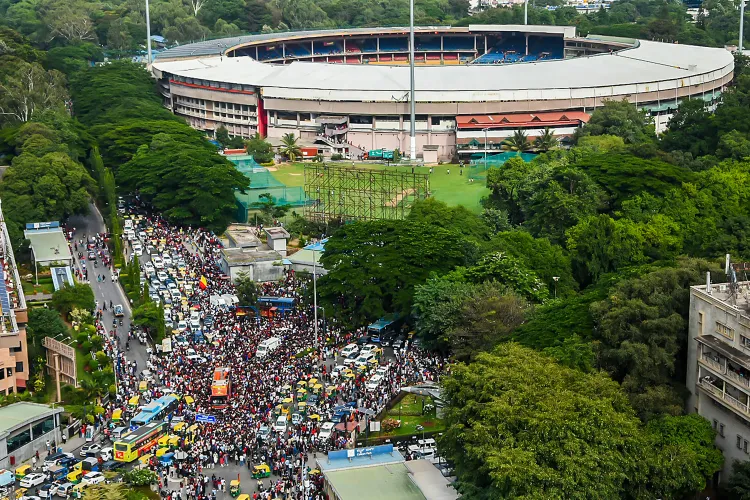
Synopsis
Key Takeaways
- Karnataka government submitted a report to the High Court.
- 11 lives lost in the Chinnaswamy Stadium stampede.
- High Court raised concerns about multiple inquiries.
- Importance of following Standard Operating Procedures.
- Need for effective crowd management at events.
Bengaluru, June 12 (NationPress) The Karnataka government has officially submitted a detailed report regarding the tragic stampede incident at Chinnaswamy Stadium on June 4, which resulted in the loss of 11 lives. This report, enclosed in a sealed cover, was presented to the Karnataka High Court amidst inquiries regarding the various investigative commissions established to examine the incident.
During the hearing, a Division Bench led by Acting Chief Justice V. Kameshwara Rao and Justice C.M. Joshi expressed their concerns over the multiple agencies probing the matter, as directed by the state government. They cautioned Advocate General Shashi Kiran Shetty about the risks of inconsistent findings, stating, “We will not spare you if the findings by different commissions are different.”
The bench mandated the prosecution to maintain all communications related to the stampede in the custody of the Chief Secretary of Karnataka, and requested the terms of reference for the various commissions involved in the investigation, which the Advocate General committed to providing within two days.
The government has initiated several probes, including a magisterial investigation, a Criminal Investigation Department (CID) inquiry, and a one-man Judicial Commission review of the stampede case.
Following the incident, the High Court sought details on lapses regarding the stampede and took notice by registering a suo motu Public Interest Litigation (PIL).
The court raised pertinent questions about whether the Standard Operating Procedures (SOPs) were adhered to and whether sufficient guidelines were established for managing the crowd at the Chinnaswamy Stadium during the celebratory events.
Additionally, the court inquired about the total number of gates at the stadium and how many were opened for fans during the celebration. Concerns were also raised about the lack of medical facilities and ambulances available for those who suffered health emergencies.
It was noted that the stadium's seating capacity is 35,000, but approximately 2.5 lakh individuals attended the event. The court was informed that typically, 700 police personnel monitor the crowd during matches, but for this event, 1,600 officers were deployed.
People from various regions, including Tamil Nadu, attended the celebration, which led to the unfortunate incident. The government reported that all 21 gates of the Chinnaswamy Stadium were open, yet senior counsel G.R. Mohan contested this, claiming only three gates were operational.
Furthermore, senior counsel Hemanth Raj argued that the state government shouldn't have honored the RCB players as they had not represented the country, suggesting that the dual events conducted on the same day contributed to the calamity.


